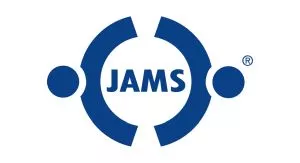Many attorneys may not be aware of a powerful tool that can
assist them in understanding and settling disputes. Neutral
analysis is an unbiased assessment of a case typically conducted by
neutrals who are often retired judges or attorneys with specialized
skills.
What is Neutral Analysis
Neutral analysis is tool that can be used to review, assess, critique and predict the impact of key essentials of the dispute, as well as uncovering themes and strategies that can be employed. It can also be helpful with case organization, reviewing legal issues and case dispositive possibilities, pertinent facts, evaluating witnesses, credibility and the best design for examination. Neutral analysis is an ideal way to assess evidence and evidentiary issues, approaches to remedies and damages, seek input on jury selection, provide a review of likely judges, panels or jury reactions. It can also be helpful for preservation of appellate issues and likely appellate judge or justice views.
Neutral analysis allows counsel and the client to plan and customize an effective approach. The presentation can be based solely on written materials or in-person presentations, or a combination. The subject matter may be part of the case or the entire case. Neutral analysis delivers critical insights that can be invaluable to attorneys as they develop their strategy. The insights gathered focus on not only the substance of a case, but also how attorneys can effectively present it to a judge, jury, mediator or arbitrator.
A Tool for Any Point in the Continuum
Neutral analysis can be used at any point in a dispute by one party or all parties to a dispute. It can be invaluable in determining if the parties should litigate, arbitrate or mediate. "Neutral analysis can be employed before the dispute is formally teed up in pre-litigation, during the early motion stage or later in the process after discovery," explained Clarence L. Pozza, Jr., Esq., a JAMS neutral. "It can even be useful before an appeal, sizing up the issues and weighing them against the specific judges on the appeals court, and how they have ruled in the past. These insights can save attorneys and clients from wasting a lot of time and money, not to mention the risk of setting a negative precedent that may have much broader impact."
Of course, neutral analysis is only as good as the open-mindedness of the parties involved. "Lawyers and their clients have to be open to neutral analysis, which means being open to hearing something they don't want to hear," said retired Wayne County Circuit Court Judge and JAMS neutral, Lita Masini Popke. "All too often, the parties disagree with my assessment because it's not what they wanted to hear. There are other situations where attorneys employ neutral analysis to give their clients a reality check. In the case of clients who simply won't accept their attorney's reasoned assessment of the strengths and weaknesses of a case, bringing in an unbiased, third-party expert can be what's needed to convince a recalcitrant client to see the writing on the wall."
Pozza adds that "what's most important is that the attorneys and their clients are open and honest with the neutrals. That means sharing the good, the bad and the ugly of the dispute. Open information flow is imperative to get the most value out of the analysis. Only then can the neutrals really provide insights to a party."
The Broad Applicability of Neutral Analysis
Neutral analysis can be used in a wide range of disputes. Judge Popke believes neutral analysis is highly effective before going into a trial.
"Some attorneys will use a mock-trial prior to a trial to test their presentation. Neutral analysis offers lawyers in a dispute similar insight, but with more of a legal and factual perspective," stated Judge Popke. "Analysis gives lawyers and their clients a neutral view of what their case might look like in front of a jury. After all my years on the bench, I had a pretty high percentage of synchrony between how I thought a case should end in a verdict and how it did end in the verdict. So, I strongly believe neutrals who are retired judges have that ability to share predicted outcomes with the lawyers, which can be invaluable."
Neutral analysis can also be useful in preparing for high-level mediation or complex arbitration, providing an unbiased evaluation of all aspects of the dispute. Analysis can also be used following an unsuccessful mediation and prior to trial, helping
navigate dispositive motions and preparing the case. "In such an instance, lawyers could tell the neutral evaluator everything that was presented at the mediation," proffered Judge Popke. "Neutral evaluation after an unsuccessful mediation might provide some perspective that the client needs to hear, which might prime them for a renewed mediation thereafter."
Criteria for Selecting an Effective Analysis Panel
Once the decision is made to use neutral analysis, choosing a single neutral or a panel of neutrals is the next order of business. Experience of the panelists is the key criteria. A highly experienced judge and/or trial lawyer increases the probability of success. Due diligence is important to evaluate the neutral and determine if they have the requisite exposure to the issues involved.
"For example, here in Michigan, all of our JAMS neutrals have a wealth of experience, either as judges or attorneys," said Judge Popke. "In some cases, such as automotive disputes, having a neutral with a strong knowledge of the industry and familiarity with engineering is helpful. In others instances, it might be best to have a neutral with more general knowledge who can view the case much as an average juror would. If that neutral can't understand what the lawyers are talking about, there's little chance that they're going to be able to explain it to a jury. Having a panel with different perspectives on the case can be particularly helpful."
"In some instances, having a single neutral is sufficient, and in others, a panel of neutrals makes the most sense," explained Pozza. "My judicial colleagues in the Detroit office have collectively conducted over a thousand trials, as well as thousands of dispositive motions and settlement conferences. With this experience, they can help in almost any matter."
Regional Experience Worth Its Weight in Gold
The regional knowledge and experience of neutrals can also be incredibly valuable. "My JAMS neutral colleagues in our Detroit office know the benches in southeast Michigan and the federal court in the Eastern District intimately," concluded Pozza. "Analysis by these neutrals can provide attorneys with very granular details, such as the things that matter most to a particular judge or jury. Neutral analysis can also be used to develop approaches to not only a trial, but also a mediation or arbitration, providing an in-depth analysis of the decision-makers, whether it be a judge, jury, mediator or arbitration panel. I can't think of a single reason why attorneys wouldn't avail themselves of neutral analysis. It's a critical tool that can make a huge difference."
The content of this article is intended to provide a general guide to the subject matter. Specialist advice should be sought about your specific circumstances.


